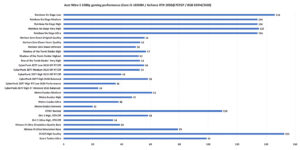
The latest digital security bulletin from the FBI is sure to turn some heads, in both the literal and figurative sense. According to the US federal law enforcement agency, criminals are using AI-generated images to put a new spin on blackmail. They’ve been seen using publicly-posted images on social media and running them through an AI image generator to create convincing (but entirely fake) nude photos, then extorting the victims for money or real photos, in a practice the bureau is calling “sextortion.”
This sort of thing isn’t exactly new — nothing was stopping malefactors from using social media selfies and Photoshop before, and that’s happened in some isolated cases. The danger comes from the ease of access to this technique created by new AI “deepfake” image tools. Now criminals don’t need months or years of experience in convincing image manipulation, they just need a few photos and the right software. The bureau says that fake explicit images of both adults and children have been spread on porn sites for general harassment in addition to being sent directly to victims for extortion attempts. The FBI has noticed an increase in victim reports over the last few months.
AI-generated image tools have become incredibly easy to access for the public in the last year. One need only go to Bing to generate, say, a photo of “Marilyn Monroe in lederhosen.” Most public-facing AI image generators won’t let you train them on a set of specific photos or generate anything verging on pornography. But there are community-created software tools that can be run on individual PCs (often with the help of powerful consumer-grade hardware) without any such restrictions.
Options for victims are few and frustrating. According to the FBI’s report (spotted by BleepingComputer), parents are recommended to closely monitor their children’s online activity and periodically search for their personal info in places it shouldn’t be. A good tip is using reverse image search services like Google or TinEye to find places where your personal photos may have been posted without your consent. Victims are instructed to not pay or otherwise appease blackmailers — it does not guarantee removal of images or video from the internet — and otherwise follow standard social media safety steps like declining friend requests from strangers and utilizing any available privacy settings.
- SEO Powered Content & PR Distribution. Get Amplified Today.
- EVM Finance. Unified Interface for Decentralized Finance. Access Here.
- Quantum Media Group. IR/PR Amplified. Access Here.
- PlatoAiStream. Web3 Data Intelligence. Knowledge Amplified. Access Here.
- Source: https://www.pcworld.com/article/1945525/blackmailers-are-using-ai-to-generate-nudes-from-social-media-photos.html
- :has
- :is
- :not
- :where
- 28
- a
- access
- According
- activity
- addition
- adults
- agency
- AI
- an
- and
- any
- anything
- ARE
- Attempts
- available
- BE
- become
- been
- before
- being
- Blackmail
- BleepingComputer
- both
- bulletin
- Bureau
- but
- by
- calling
- CAN
- cases
- Children
- closely
- comes
- consent
- create
- created
- Criminals
- DANGER
- Declining
- digital
- directly
- does
- Dont
- ease
- easy
- enforcement
- entirely
- exactly
- experience
- extortion
- fake
- fbi
- Federal
- federal law
- few
- Find
- follow
- For
- friend
- from
- frustrating
- General
- generate
- generator
- generators
- good
- guarantee
- happened
- harassment
- Hardware
- Have
- heads
- help
- HTML
- HTTPS
- image
- Image Search
- images
- in
- Increase
- incredibly
- individual
- info
- Internet
- isolated
- IT
- jpg
- just
- Last
- Last Year
- latest
- Law
- law enforcement
- like
- Manipulation
- May..
- Media
- money
- Monitor
- months
- most
- Need
- New
- nothing
- now
- of
- often
- on
- ONE
- online
- only
- or
- otherwise
- over
- parents
- Pay
- PCs
- personal
- Photos
- photoshop
- Places
- plato
- Plato Data Intelligence
- PlatoData
- Porn
- Pornography
- posted
- powerful
- practice
- privacy
- public
- put
- real
- recommended
- removal
- Reports
- requests
- restrictions
- reverse
- right
- Run
- running
- Safety
- say
- says
- Search
- security
- seen
- sense
- sent
- Services
- set
- settings
- Sites
- Social
- social media
- Software
- some
- specific
- Spin
- spread
- standard
- Steps
- stopping
- such
- that
- The
- their
- Them
- then
- There.
- they
- thing
- this
- Through
- tip
- to
- tools
- Train
- TURN
- us
- US Federal
- using
- Utilizing
- Victim
- victims
- Video
- was
- with
- without
- year
- years
- you
- Your
- zephyrnet












